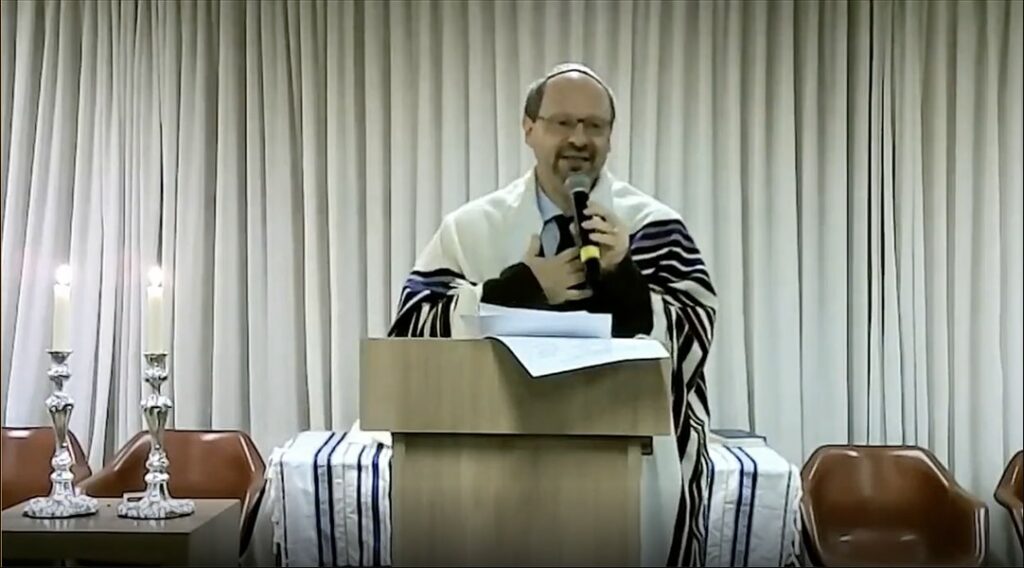Bruno’s Song – Amazon – For UJR-AmLat
In memory of Bruno Pereira and Dom Phillips.
By raising our awareness of what is happening in the Amazon.
Rabbi Uri Lam
“Let’s try to sing this indigenous nigun, of the disappeared activist? Sending a virtual hug.” And so began a conversation between me and Daniel Szafran, a musician at my synagogue, Temple Beth-El. He sent me an instagram of Bruno sitting in the woods, calm and happy. On the sleeve of the shirt, damp from the rainforest, an emblem with the flag of Brazil. In the surroundings, sounds of the forest and indigenous voices. I listened it repeatedly. It was definitely an indigenous nigun. I sang it for Dani like a nigun.
It was a sacred encounter between ancestral traditions: the indigenous – the Ticuna people; and the Jewish — The People of Tikun Olam.
[Uri]: “Here is the ‘Brunisher Nigun’ or ‘Nigun of the Forest’. What do you think?”
[Dani]: “If I could make a sentence in the indigenous language and mix it with something of ours, it would be a beautiful tribute.”
[Uri]: “We can put a Jewish letter that speaks of nature.”
[Dani]: “Brunisher Nigun, by Bruno, right? ”
[Uri]: “Dani, please, look for Deut. 20:19 in the Torah.”
I sent another audio to Dani, now with the indigenous and Hebrew lyrics. To blend in with a prayer from the forest, we needed, on our side, a prayer about the Etz Chaim, the Tree of Life, the Torah.
Bruno’s Nigun – Amazon
Melody and 1st verse: Ticuna people, from the Amazon rainforest, by Bruno Pereira z”l.
2nd verse: Deut. 20:19.
Composition: Daniel Szafran, Rabbi Uri Lam.
WAHANA RARA-EH, WAHANA RARA-EH,
MAREENAH WAKENADAY, MAREENAH WAKENADAY.
LO TASHCHEET ET AYTZAH, LINDOACH ALAV GARZEN,
KI MIMAYNU TOH-KHEL, VEH-OTOH LO TICHROT.
KI HAADAM, ETZ HASSADAY,
HAADAM ETZ HASSADAY, HAADAM ETZ HASSADAY.
Do not destroy your trees by wielding the ax against them. You can eat them, but not drop them. For the trees of the field are human
[so that they can withdraw when you besiege the city?] (Deut. 20:19)
On Shabbat, in the Mourners Kaddish, I have included their names. Righteous of the world.
This nigun will stay forever. Perhaps to be sung on Tu bShvat, New Year of Trees. Perhaps annually every June 17, in memory of the day they were found dead. Perhaps in the camps, as a way of making young people aware of the love we should have for all the trees of life and their guardians.


